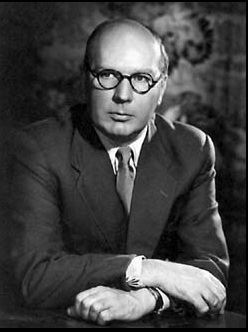M. S. Bartlett facts for kids
Quick facts for kids
M. S. Bartlett
|
|
|---|---|
 |
|
| Born | 18 June 1910 London, England
|
| Died | 8 January 2002 (aged 91) Exmouth, Devon, England
|
| Alma mater | University of Cambridge |
| Awards | Guy Medal (Silver, 1952) (Gold, 1969) Weldon Memorial Prize (1971) Fellow of the Royal Society |
| Scientific career | |
| Institutions | University College, London Imperial Chemical Industries University of Cambridge University of Manchester University of Oxford |
| Doctoral advisor | John Wishart |
| Doctoral students | David George Kendall Maurice Priestley Alladi Ramakrishnan Julian Besag |
Maurice Stevenson Bartlett FRS (born June 18, 1910 – died January 8, 2002) was a brilliant English statistician. He was a Fellow of the Royal Society, which is a big honor for scientists. Bartlett was especially good at understanding data that changed over time or was spread out in space. He also helped develop important ideas in how we make sense of information and analyze many different types of data at once.
Contents
Early Life and Learning
Maurice Bartlett was born in London into a family that didn't have much money. Despite this, he won a scholarship to Latymer Upper School in Hammersmith. There, a chapter in a math book about algebra inspired him to study statistics.
In 1929, he won another scholarship to Queens' College, Cambridge. He studied mathematics and graduated as a "wrangler," which means he was one of the top math students. He learned from famous scientists like Arthur Eddington (who studied relativity) and Paul Dirac (who studied quantum mechanics).
Starting in Statistics
Bartlett also attended lectures on statistics by John Wishart. Wishart showed a complex way to understand a certain type of data distribution. Overnight, Bartlett found a simpler way to prove it using "characteristic functions."
Bartlett became Wishart's first student working on a higher degree. They wrote two papers together. This was the start of Bartlett's important work with "multivariate analysis," which means studying data with many different variables. While at Queens' College, he also enjoyed rowing for his college team.
Working as a Statistician
In 1933, Bartlett joined the new statistics department at University College, London. He worked with other famous statisticians like Egon Pearson, Jerzy Neyman, Ronald A. Fisher, and J. B. S. Haldane. He learned a lot from them, especially from Fisher's work.
Time at Imperial Chemical Industries
In 1934, Bartlett became a statistician at the Imperial Chemical Industries (ICI) agricultural research station. He solved real-world problems and also worked on new statistical ideas. He even studied problems in genetics and looked into how to measure intelligence. Bartlett later said that working at ICI was the best job environment he ever had.
World War II Contributions
Bartlett left ICI for the University of Cambridge in 1938. But when World War II began, he joined the Ministry of Supply. He helped with rocket research alongside other smart scientists like Frank Anscombe and David George Kendall.
After the War
After the war, Bartlett returned to Cambridge. He focused on "time-series analysis" (studying data that changes over time) and "stochastic processes" (mathematical models for things that change randomly). He wrote his own book on stochastic processes, which became very important.
University Professor
In 1947, he became a professor of mathematical statistics at the University of Manchester. There, he became interested in epidemiology, which is the study of how diseases spread. He was also a good leader and administrator.
Later, in 1960, he became a statistics professor at University College, London. For the last eight years of his career, he was a professor of biomathematics at the University of Oxford. He retired in 1975.
Later Years
Even after retiring, Bartlett stayed active in statistics. He visited the Institute of Advanced Studies in Australia many times. He married Sheila Chapman in 1957, and they had a daughter. Maurice Bartlett passed away in Exmouth, England.
Bartlett is remembered for his important contributions, including Bartlett's method for understanding the strength of different frequencies in data, and Bartlett's test for checking if different groups of data have similar variations.
Honors and Awards
Maurice Bartlett received many awards and honors for his important work:
- Rayleigh Prize, (1933)
- Guy Medals in Silver (1952) and Gold (1969) from the Royal Statistical Society
- President of the Manchester Statistical Society, (1959–1960)
- Fellow of the Royal Society, (1961)
- President of the Royal Statistical Society (1966)
- Honorary Member of the International Statistical Institute, (1980)
- Foreign Associate of the U.S. National Academy of Sciences, (1993)
- Received honorary D.Sc. degrees from the University of Chicago (1966) and the University of Hull (1976)
About His Life
Maurice Bartlett also wrote about his own life and career:
- "A Conversation with Maurice Bartlett" in Statistical Science, 1989.
- "Chance and Change" in The Making of Statisticians, 1982. In this book, several statisticians, including Bartlett, share their life stories.
 | Janet Taylor Pickett |
 | Synthia Saint James |
 | Howardena Pindell |
 | Faith Ringgold |

